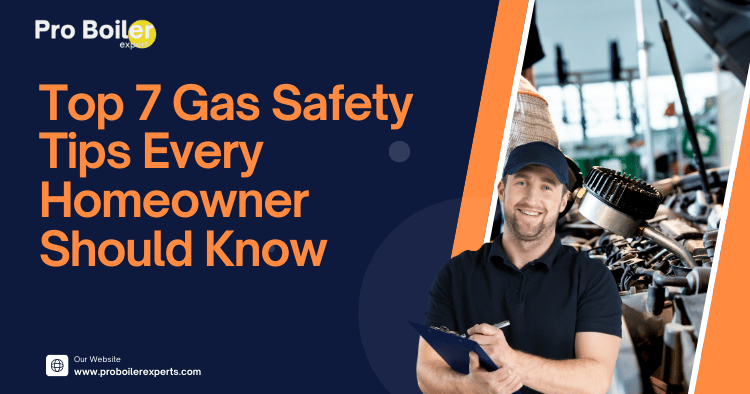Table of Contents
- Understanding Gas Safety
- Regularly Check for Leaks
- Proper Ventilation is Key
- Install Carbon Monoxide Detectors
- Know How to Shut Off Your Gas Supply
- Use Gas Appliances Safely
- Schedule Regular Maintenance
Understanding Gas Safety
Gas safety is crucial for every homeowner to ensure the well-being of their family and property. Natural gas, commonly used for heating and cooking, is safe when handled correctly. However, improper use or neglect can lead to potentially dangerous situations, including gas leaks, fires, or carbon monoxide poisoning.
Note: Understanding the basics of gas safety is the first step in protecting yourself. Familiarize yourself with the appliances in your home that use gas, such as stoves, furnaces, and water heaters. Always read the manufacturer’s instructions and maintain them according to the guidelines.
Regularly Check for Leaks
One of the most critical aspects of gas safety is regularly checking for leaks. Gas leaks can occur in any part of the gas system, from the supply line to appliances. Here’s how to detect them:
- Smell: Natural gas is odorless, but a substance called mercaptan is added to give it a distinctive rotten egg smell. If you ever detect this odor, take it seriously.
- Listen: You might hear a hissing or whistling sound near gas lines or appliances, which can indicate a leak.
- Look: Check for unusual signs like dead plants near gas lines or a white cloud near an appliance.
Important: If you suspect a gas leak, evacuate your home immediately and contact your gas supplier or local emergency services.
Proper Ventilation is Key
Ensuring proper ventilation in your home is essential for gas safety. Adequate airflow can prevent the buildup of harmful gases, such as carbon monoxide, which can result from incomplete combustion. Here are some tips for maintaining good ventilation:
- Open Windows: Whenever you use gas appliances, consider opening a window to allow fresh air in.
- Ventilation Systems: Make sure your kitchen and bathroom are equipped with exhaust fans to help circulate air.
- Check Vents: Ensure that gas appliance vents are clear of obstructions and regularly cleaned.
For more information on proper ventilation, check the U.S. Consumer Product Safety Commission.
Install Carbon Monoxide Detectors
Carbon monoxide (CO) is a colorless, odorless gas that can be deadly. Installing carbon monoxide detectors in your home is a proactive measure to protect your family. Here’s what you need to know:
- Placement: Install CO detectors on every level of your home, especially near sleeping areas.
- Maintenance: Test your detectors monthly and replace batteries at least once a year. Replace the unit every five to seven years, as per the manufacturer’s guidelines.
- Signs of CO Poisoning: Be aware of symptoms like headaches, dizziness, and nausea, which could indicate a CO problem.
For additional insights on carbon monoxide safety, check CDC’s Carbon Monoxide Poisoning Prevention.
Know How to Shut Off Your Gas Supply
In emergencies, knowing how to shut off your gas supply can be a lifesaver. Here’s a quick guide:
- Locate the Gas Shut-Off Valve: This is usually found near the gas meter. It’s typically a round knob or lever.
- Turn Off the Valve: For a lever-type valve, turn it a quarter turn in either direction. For a round knob, turn it clockwise.
- Emergency Situations: Only turn off the gas if you smell gas or if there’s a risk of fire.
- Call a Professional: After shutting off the gas, call a professional to inspect and restore it safely.
Use Gas Appliances Safely
Using gas appliances safely is vital in preventing accidents. Here’s how to ensure safe use:
- Follow Instructions: Always read and follow the manufacturer’s operating instructions for each appliance.
- Check Connections: Inspect gas connections for leaks before using appliances. You can do this with a solution of soapy water; bubbles indicate a leak.
- Avoid Overloading: Don’t overload gas appliances with heavy pots or equipment, which could cause them to malfunction.
- Turn Off When Not in Use: Always turn off gas appliances when they’re not in use to prevent accidental ignition.
Schedule Regular Maintenance
Regular maintenance of your gas appliances and systems can help prevent potential hazards. Here’s a suggested maintenance checklist:
| Task | Frequency |
|---|---|
| Inspect gas appliances | Annually |
| Check and replace gas supply lines | Every 5 years |
| Clean vents and flues | Annually |
| Test carbon monoxide detectors | Monthly |
Tip: Consider hiring a licensed technician for more complex checks and repairs. Regular maintenance not only ensures safety but can also improve appliance efficiency.
By following these top seven gas safety tips, you can help protect your home and family from the dangers associated with gas. Remember, safety is a proactive endeavor, so stay informed and vigilant!
For more in-depth information on gas safety, check out the National Fire Protection Association.
Also Look For
- Top 5 Gas Boilers for Efficient Home Heating 2024
- Top Gas Safety Regulations for Boiler Installation 2024
- Top Boiler Brands and Warranty Support You Can Trust
Stay safe and enjoy the benefits of your gas appliances with peace of mind!





